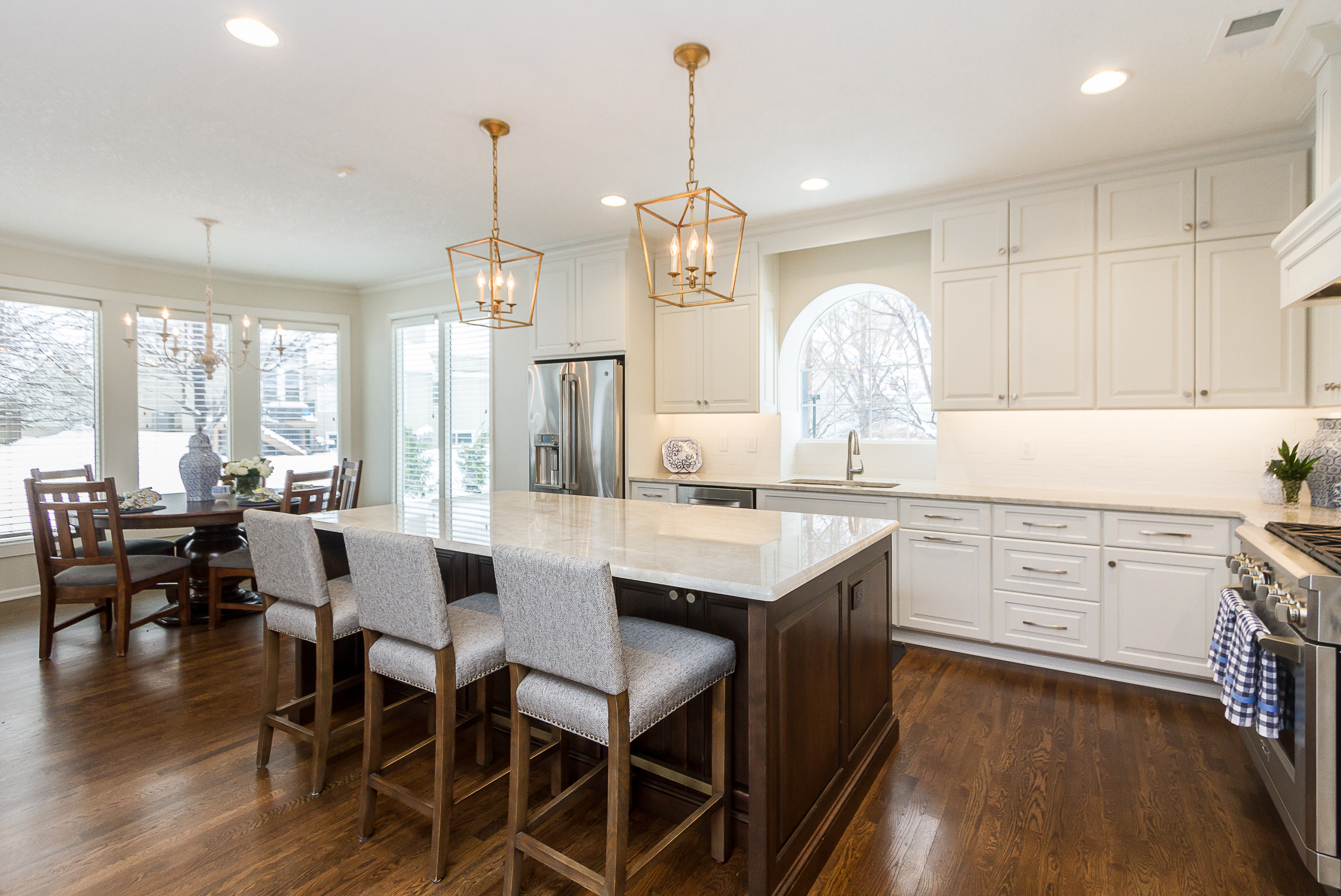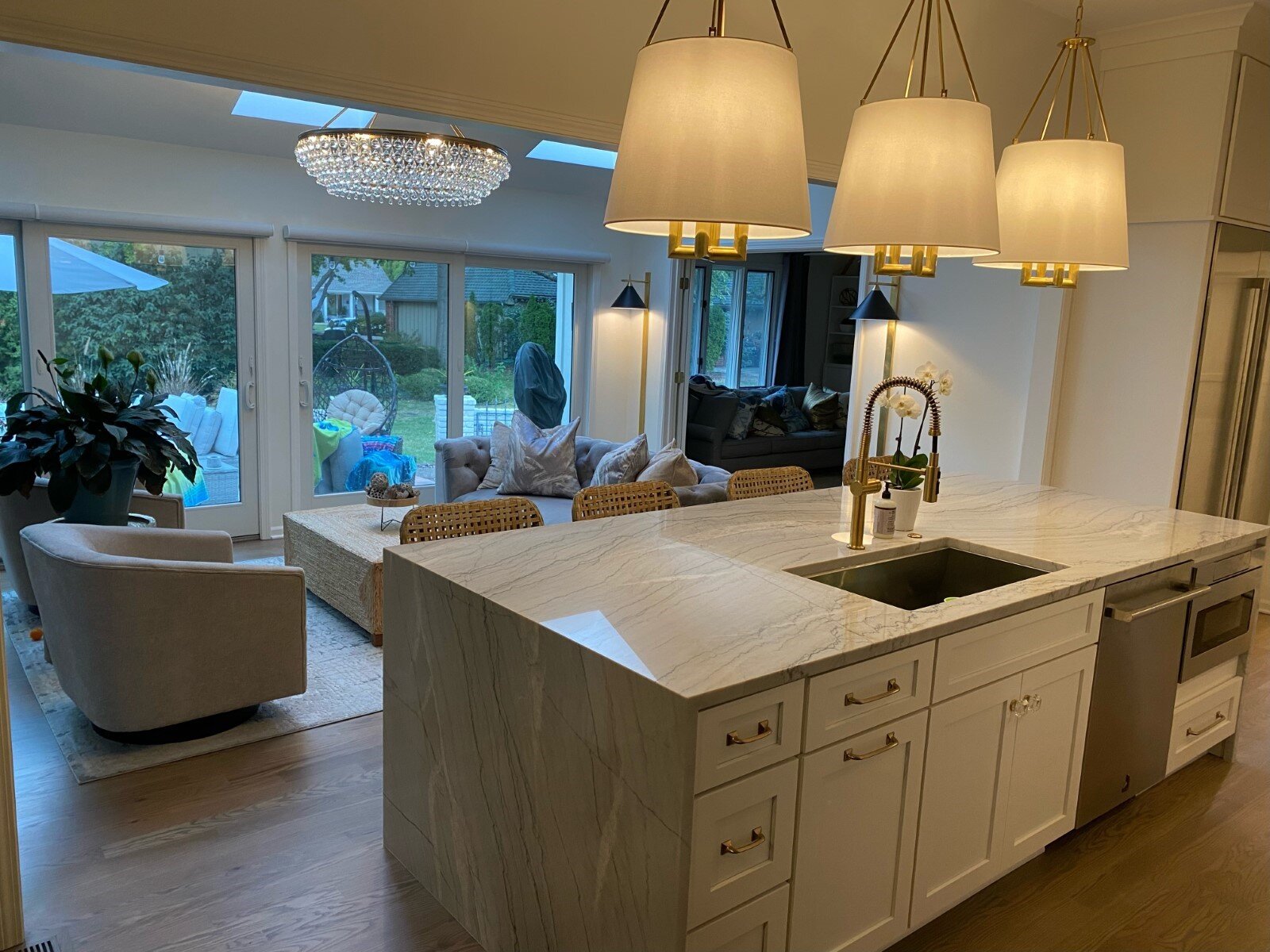
Selecting the ideal countertops for your space can be a daunting task amidst the vast variety of options available. Two frequently confusing choices are quartz and quartzite countertops. Despite their similar names, they are distinct materials, each with its advantages and disadvantages. Here at RWS, we have seen many past clients decide on solid surface options over the years. Many have had questions about what countertops would be the best option for them and why.
Because of this, we curated a guide to help you through the decision process.
-What are Quartz and Quartzite?
Quartz is man-made, less porous than natural stone, and easy to maintain. Alternately, quartzite is a natural stone, therefore it is more porous and often more expensive. For more in-depth learning, please read our detailed guide below.
- Exploring the Ogrins of Quartz and Quartzite:
Quartz: Quartz countertops are crafted from a blend of 90-95% crushed natural quartz crystals, mixed with resins, polymers, and pigments. This blend is then subjected to pressure and heat to form a resilient and non-porous surface.
Quartzite: Quartzite countertops are natural stones formed from sandstone that have undergone substantial heat and pressure within the Earth's crust. This process transforms it into a dense and robust material, which is subsequently cut and polished into a solid, flat surface.
- Appearance and Design of Quartz & Quartzite:
Quartz: Due to its engineered composition, quartz countertops offer an array of colors, patterns, and finishes. They can even replicate the appearance of natural stones like marble or granite, making quartz a versatile choice for those with specific aesthetic preferences. Please note: Although some quartz can replicate natural stone quite well, some options may fall short in this area. So, make sure to check out all the available options of the quartz you are looking for, as some may look quite different to others depending on the manufacturer.
Quartzite: Quartzite countertops boast distinctive and captivating patterns owing to the natural variations in the stone's composition. Consequently, no two quartzite countertops are identical. If you appreciate the allure of natural stone with a touch of individuality, quartzite may be the ideal option.

- Durability and Maintenance:
Quartz: Renowned for its durability, quartz is resistant to scratches, stains, and heat. Its non-porous surface also makes it less susceptible to bacterial growth, rendering it an excellent choice for busy kitchens. Minimal maintenance is required – regular cleaning with soap and water suffices.
Quartzite: While quartzite is durable, it is not as resistant to scratches and heat as quartz. Additionally, quartzite is porous, necessitating sealing to prevent stains and bacterial buildup. Proper sealing and cautious handling of hot items are imperative for maintaining their appearance.
"We were working on an incredible kitchen remodel in Overland Park, KS, and the clients liked the look of both quartz and quartzite but were having a difficult time deciding between both options. When asked about their specific needs they told us they needed a cost-conscious, durable, easy-to-maintain, child-friendly countertop that complemented their design elements. Knowing all these factors it was clear that quartz would be the better choice, and with quartz having so many colors and options available they were able to find the right countertop for their beautifully renovated kitchen." - Ray Stillions
- Cost Considerations:
Quartz: Commonly, Quartz countertops are more cost-effective than quartzite, usually under $100.00 per square foot. Their engineered nature allows for better control over production costs, often resulting in a more budget-friendly price point. However, premium quartz designs can still have higher prices.
Quartzite: As a naturally occurring stone, quartzite typically entails higher production costs, and takes more to main, making quartzite countertops pricier than quartz. On Average, this natural stone will cost $100.00 - $150.00 per square foot. If budget constraints are a concern, quartz might be the preferable option.
- How Installation and Weight can impact your decision on if Quartz or Quartzite is right for your project:
Quartz: With its uniformity and lighter weight, quartz countertops are easier to work with during installation.
Quartzite: Due to its natural density, quartzite is heavier and more challenging to handle. Additional structural support might be necessary to accommodate its weight, and installation may require more labor-intensive efforts.
-Environmental Impact of Quartz and Quartzite:
Quartz: Despite utilizing natural quartz, quartz countertops involve blending it with resins and polymers during manufacturing, potentially resulting in a higher environmental footprint.
Quartzite: Being a natural stone, quartzite countertops are more environmentally friendly regarding sourcing and production. Nevertheless, the environmental impact of extraction and transportation should be considered.
The choice between quartz and quartzite countertops hinges on individual preferences and priorities. Quartz countertops offer versatility in design, easy maintenance, and a more budget-friendly option. Conversely, quartzite countertops exude the beauty of natural stone with unique patterns but require more meticulous maintenance and higher investment. By considering the differences in material origin, appearance, durability, cost, installation, and environmental impact, you can confidently make an informed decision. Remember that both quartz and quartzite countertops have distinct strengths, and your selection should align with your style, lifestyle, and budget. To ensure preparedness, thorough research on products for your renovation is advised. For further insights into how a contractor prepares for your project, please visit the RWS Our Process page here, or if you are ready to start a project and book an initial call, click here.